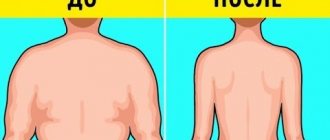Home > Self-development > Health > How to stop eating sweets and lose weight
Author: Nastena 05/20/2020 0 comments
Health, Self-development, Advice
Health, healthy lifestyle, self-development, advice
Sitting at home in quarantine has a bad effect on your mood; you want to get a little joy and eat something sweet. But the voice of reason tells you to stop, once you have reached the desired query in the search engine - How to stop eating sweets and starchy foods? And at the same time lose weight? How not to eat stress with sweets? So let's figure out what to do and where to start to stop snacking on unnecessary sweets. After all, usually all this is deposited on our sides.
What kind of sugar exists and what is better?
We have all heard that sugar and salt are white death, and this statement can be considered true only if you consume them in large quantities. We need them in the body in any case, only in small doses and in the right foods (fruits, berries, vegetables, for example).
Sugar is found in many foods today, so even without various sweets we already get enough of it; it is usually used as a cheap food additive.
You need to understand that sugar can be roughly divided into:
- natural (vegetables, berries, fruits), it does not harm the human body, because comes together with fiber, vitamins and beneficial microelements, which are gradually processed in the body and bring benefits, the main thing is not to overdo it with them and eat everything in moderation. Otherwise, it all comes down to being stored as fat in any case.
- and industrial (refined) sugar, which immediately enters the blood, because it does not need to be digested for a long time and the bulk goes directly into the blood. And if there is already enough glucose in the body at the previous stages, then our body stores it in fat storage.
The harm of sugar
All sugar in excess in the body will harm your body.
First of all, bacteria love and develop well when there is an excess of sweets in the body; this is an excellent environment for their reproduction.
Consequences of overeating sweets:
- bad teeth, skin and hair
- decreased immunity
- damaged vessel walls
- diseases of the cardiovascular system in general
- diabetes
- and many other ailments
Why do people love to eat sweets?
People love to get pleasure from sugar, and the part of the brain responsible for this is activated. The body also releases the hormone of joy.
How to stop eating sweets
The dangers of sugar are now known for certain. But how to overcome cravings for sweets? There are ways that will help even those who cannot live a day without cookies or cake.
The World Health Organization estimates that a typical Russian eats about 100 grams of sugar per day. Despite the fact that the human body can process no more than 50 g of sweet additive more or less painlessly. And modern scientific research persistently links excess sugar in the menu with such serious diseases as diabetes, hypertension, strokes and heart attacks, and colon cancer. This list alone is enough to make you forget about soda and buns forever. But there is a nuance.
Stories about the dangers of sugar, alas, cannot force those with a sweet tooth to give up candy. American biologists have long proposed to equate sweet poison with alcohol and tobacco and begin to honestly call it a drug. Not for the sake of shocking: the mechanism of our brain’s reaction to sugar is not much different from the addictions that develop, say, with each new glass of champagne.
One of many experiments on this topic is indicative. Scientists from Princeton University fed experimental rats sugar daily, gradually increasing the dose. Everyone was happy. But one day, terrible for rodents, people completely excluded sweets from the menu. What do you think? The animals became restless, irritable and aggressive and, if they could, would probably complain of a headache and a desire to bite. In general, the poor rats experienced a typical withdrawal in the absence of the coveted dose.
But let's get back to the people. Most of us swallowed our first dose of the sweet drug before we could speak clearly, and for decades maintained the bad attachment by buying “something for tea.” We can’t just stop eating sugar, no matter how strong-willed people we are , ask any narcologist. But we can gradually (this is a key condition for success) reduce the amount of sweets in our diet to a minimum or even to zero.
WH experts have formulated several rules for those who intend to one day give up desserts. We offer you an action plan.
- Get enough sleep. Yes, it's that simple. The human body interprets lack of sleep as a stressful situation - and sends hormones that regulate appetite into overdrive. One sleepless night is enough for you to eat more than 200 extra kilocalories the next day, with priority given to fast carbohydrates, that is, sugar. A well-rested person is less drawn to cakes - proven at Harvard.
- Analyze your diet. An irresistible craving for sweets often manifests itself as a symptom of a lack of chromium, zinc or magnesium (or maybe all at once). Only a blood test can definitely determine this, but just in case, check how regularly the products from the list at the end of the article appear on your plate.
- Eat protein. This is a way to maintain stable levels of glucose and insulin in the blood and, as a result, crave sweets less. Ideally, protein should be ingested at every meal, but definitely at breakfast. By proteins we mean not only meat and fish, but also nuts, seeds, eggs, and legumes.
- Eat small and frequent meals. The thought of snacking on cookies doesn’t even occur to people whose sugar levels don’t jump sharply throughout the day. Try to eat every 2-2.5 hours - and you will notice that it is easier to pass by pastry shops when you don’t have to worry about hunger pangs.
- Hide the sweets away. If there is a piece of cake waiting in the refrigerator, and gingerbread cookies in the table drawer, the temptation to eat them will defeat any vows. So it's simple: don't buy anything that isn't good for you. And for occasions when you are accustomed to eating sweets (coffee breaks with colleagues, meetings with girlfriends, morning tea), keep healthier alternatives to chocolate and croissants on hand. These can be seasonal fruits and berries, honey, dried fruits.
- Move. Regular exercise is a good way to cope with daily stress, which is often to blame for our emotional attachment to chocolate and jam.
- Add healthy fats. They are extremely important for the body's hormonal stability and help you feel full longer. Healthy unsaturated fats are found in avocados, nuts and seeds, and olive oil.
- Cook at home. To reduce the amount of sugar entering the body, you will have to limit industrially processed foods as much as possible. Sweeteners are now even added to dumplings and pickles, and the only way to avoid excess is to personally regulate the amount of sugar in your food. Here's a simple example: cutlets bought at the grocery store will almost certainly contain syrup or something like that; in a piece of meat that you personally turn into cutlets at home - no.
- Stop drinking calories. Any form of liquid sugar is worse than solid food containing it. Sugary drinks deliver the drug straight to your liver without even trying to create the illusion of satiety. Therefore, by drinking lemonade in between, you provoke yourself to eat more and more fast carbohydrates.
- Add spices. Cinnamon, nutmeg and cardamom naturally sweeten foods, help regulate blood sugar and control your addiction.
What can you eat instead of dessert?
- Magnesium. Buckwheat, nuts, leafy vegetables, cocoa beans, avocado, soy.
- Chromium. Eggs, fish and seafood, broccoli, nuts, apples, lentils, whole grains.
- Zinc. Pumpkin seeds, seafood, legumes.
Sugary carbonated drinks increase cancer risk
Cancer tends to go hand in hand with other chronic diseases such as obesity, type 2 diabetes and heart disease.
For this reason, it is not surprising that their consumption is often associated with an increased risk of cancer.
One study of more than 60,000 adults found that those who drank 2 or more sugary sodas (600 ml or more) per week had an 87% higher risk of developing pancreatic cancer than those who did not drink these drinks ().
Another study on pancreatic cancer found a strong association in women but not men ().
Postmenopausal women who drink a lot of sugary sodas may also be at greater risk of endometrial cancer or cancer of the lining of the uterus ().
Moreover, consumption of sweetened beverages is associated with cancer recurrence and death in patients with colorectal cancer ().
Conclusion:
Observational studies show that sugary sodas are associated with an increased risk of cancer.
Sweet cravings
Sugar is addictive. Sugar stimulates the production of dopamine, the pleasure hormone. As with other addictions, the body develops a tolerance to sugar, so the more you eat, the more you crave.
Excessive sugar intake may have dopaminergic, cholinergic, and opioid effects similar, although less pronounced, to psychostimulants and opiates. The overall effect of these neurochemical adaptations is a mild, but well-defined, dependence.
Detect and overcome
Food addiction is somewhat similar to drug addiction, but food, unlike drugs, is vital. You can try to influence the neural circuits that cause addiction to drugs, but doctors do not dare to fight food addiction in this way, for fear of disrupting normal eating behavior. Therefore, solving the problem of sweet tooth addiction is more difficult than solving the problem of drug addiction.
However, specialists from the Massachusetts Institute of Technology recently found that different neural circuits are responsible for normal nutrition and sugar addiction. Researchers developed a sugar addiction in mice by training them to seek out sucrose in a specific location following auditory and visual cues. The mice learned quickly - they really love sweets - and rushed in search of sucrose, even when they were full. This behavior is called compulsive. The mice did not always get sugar: sometimes insidious experimenters gave bitterness instead of sweetness, and sometimes they gave nothing. As a result, scientists were able to identify the neurons active during an unhealthy desire for sugar and the usual search for food, and it turned out that these were different cells. Researchers believe that they can try to look for substances that selectively act on these cells, a cure for sugar addiction.
Our inherent ability to enjoy high-calorie foods, combined with an excess of products that nature clearly did not count on, did not benefit us: it encourages us to feast unnecessarily and gain weight. But the more we know about the mechanisms of this scourge, the greater the chances of overcoming it.
Source: magazine “Chemistry and Life”
Read on Zozhnik:
Why sweeteners do NOT lead to obesity according to Sergei Belkov
Why do sweeteners lead to obesity?
Infographics about the dangers of sugar
Fructose - a dietary product or a sugar bomb?
Sugar is like a drug. Video with translation
Food Myth: Sugar and Hyperactivity
Sugary drinks don't make you feel full and are strongly linked to obesity
The most common form of added sugar, sucrose or table sugar, supplies the human body with large amounts of the simple sugar fructose.
Fructose does not reduce levels of the hunger hormone ghrelin and does not stimulate feelings of fullness in the same way as glucose, a sugar that is formed when starchy foods are digested (,).
So, when you consume the liquid form of sugar, it usually adds extra calories to your overall calorie intake since sugary drinks keep you from feeling full (, ,).
In one study, people who drank soda in addition to their regular diet consumed 17% more calories than before ().
It's no surprise that studies show that people who drink sweetened drinks always gain more excess weight than people who don't (, , ).
In one study among children, each daily serving of sweetened beverages was associated with a 60% increased risk of obesity ().
In fact, sugary drinks are one of the most harmful foods in terms of weight gain in the modern diet.
Conclusion:
If you drink a lot of sugary sodas, you tend to consume more calories because liquid sugar doesn't make you feel full. Sugar-sweetened drinks are linked to obesity.
Sugar Quit Experience
Many of us have been accustomed to the “sweet life” since early childhood, and it is not easy to fool our own body. And experts say that abruptly giving up sugar is dangerous to health in many ways. Based on this, the formed physiological and emotional dependence on this product must be eradicated slowly.
complete abstinence from sugar
In order to finally give up refined sugar in the future, you first need to reduce its consumption by following the recommendations:
- Gradually reduce to a minimum the amount of sugar that you consciously put in desserts, tea or coffee;
- Switch to foods that are sources of natural sugar. By including them in your daily diet, your body will not experience a lack of glucose;
- Pay attention to low-calorie natural substitutes, for example, barley malt extract or vegetable syrups;
- Make it a rule to avoid counters with confectionery products;
- Reduce the dosage of sugar by three times, using different spices, such as cinnamon, instead of the usual granulated sugar;
- Try a sugar-free diet;
- Drink plenty of water daily. Drinking plenty of fluids is 1.5-2 liters per day.
According to research, the stage of adaptation of the body to life without sugar takes about 20 days. After this period, a person can more easily tolerate the absence of sugar in the diet. After just a few months, the body fully adapts, appearance and well-being noticeably improve.
Carrot and stick
However, the basic principle is clear: in order for animals and humans to eat properly, nature uses the carrot and stick method (experts talk about the metabolic and hedonic components of eating behavior). The role of the stick is played by homeostasis control, which increases the desire to eat as energy reserves are depleted, and the carrot is the natural pleasure derived from food. This is food with appetite and pleasure, which I.P. wrote about. Pavlov. The combination of benefit and pleasure is an important evolutionary achievement that allows the animal to eat well without overeating. But if nature has endowed us with the ability to enjoy food, is it any wonder that this is the method that people and animals use to lift their spirits?
Sugar may cause leptin resistance
Leptin is a hormone produced by your body's fat cells. It regulates the number of calories you consume and burn (, ,).
Leptin levels change in response to hunger and obesity, which is why it is often called the satiety or hunger hormone.
It is now believed that resistance to the action of this hormone, called leptin resistance, is one of the leading causes of increased body fat mass in humans (,).
In fact, animal studies have linked fructose intake to leptin resistance.
In one study, consuming large amounts of fructose made rats resistant to leptin. Amazingly, when they returned to a sugar-free diet, leptin resistance disappeared (, ).
However, human studies are needed.
Conclusion:
Animal studies suggest that a diet high in fructose may stimulate leptin resistance. Eliminating fructose from the diet may solve the problem.
Quitting Sugar: Indicators of Addiction
Once sugar is absorbed, the human body produces substances such as dopamine and serotonin. These hormones are called pleasure hormones, and they lead to an increase in mood. Upon completion of their influence, a person wants to reproduce the previously experienced feeling again - this is a standard scheme on which various types of addictions are based.
Is it possible to give up sugar completely?
Sugar can also be quickly absorbed into the gastrointestinal tract. Sweets promote the production of insulin. As a result, the level of glucose in the blood quickly increases and without the same sharply decreases. It is precisely on this basis that after consuming sweets, a feeling of satiety soon arises, which lasts a relatively short time and is replaced by the emotion of hunger.
Indicators of sugar addiction:
- A person does not have the ability to control the volume of tasty products he consumes;
- A lack of treats leads to a bad mood and nervousness, and in certain situations, to cold sweat or trembling in the body;
- Digestive disorders and bloating are quite common;
- Extra centimeters appear on the hips and waist area.
Why do we crave sweets so much?
Of course, because this is one of the most easily accessible, albeit fleeting pleasures that is always at hand.
In addition, from early childhood we perceive all sweet food as a reward for good behavior - first for eating soup, then for doing homework on time.
And we transfer this feeling into adulthood, where relationships with sweets should also be adults.
Unbalanced diet
The main and main reason is an unbalanced diet with an insufficient amount of complex carbohydrates, which take a long time to digest and give a feeling of fullness.
All the sweet food that we throw into the body belongs to the simple ones - it flies by without a trace or benefit, but immediately settles on the sides and waist, and we want to eat again and again.
And all in larger and larger quantities.
Since childhood, we are accustomed to perceive sweets as a reward.
Habit of overeating
It is quite logical: the more we eat, the larger our stomach becomes, the more food it consumes, the more significant the numbers on the scales show.
Blood sugar rises during meals, and insulin lowers it. Such sharp jumps lead directly to an endless desire to eat and diabetes.
Active brain activity
If our profession requires us to think a lot, then the carbohydrate-eating brain will endlessly ask to feed it candy.
Following the lead, we give him what he wants, instead of healthy and necessary food - nuts, for example, or cottage cheese.
"Critical days
This point applies exclusively to representatives of the fair half of humanity.
Since during menstruation the level of production of the hormones estrogen and serotonin (the hormone of joy) decreases, in revenge he asks for tasty and forbidden things.
Women tend to overindulge in sweets during menstruation
However, such pleasure is short-term - literally after 30-40 minutes you want to extend it.
Sugary sodas may increase the risk of heart disease
Sugar consumption has long been associated with the risk of developing cardiovascular disease (, ).
It is well known that sugar-sweetened beverages increase risk factors for cardiovascular disease, including high levels of sugar, triglycerides, and small dense LDL particles in the blood (, ).
Recent human studies report a strong association between sugar intake and the risk of cardiovascular disease in all populations (, , , , , ).
One 20-year study of 40,000 men found that those who drank 1 sugary drink (300 ml) per day had a 20% increased risk of having a heart attack (or were more likely to die from one) compared to men who rarely drank. sweet drinks ().
Conclusion:
Numerous studies have shown a strong connection between the consumption of sugary carbonated drinks and the risk of developing cardiovascular diseases.
Decreased sense of taste
Many people find sweet taste pleasant. The tongue gets used to different tastes, and sugar is no exception.
British researchers have found that overweight people have a blunted sensitivity to sweets and liking for sweet foods. In the same study, healthy people who started drinking 2 sugary soft drinks a day had a dulled sense of taste and cravings for sugar after 4 weeks.
Subconscious drive plays a huge role in food choice. When overweight people feel hungry, they are more susceptible to their subconscious desire for sugary, high-calorie foods.
Likewise, a 2020 study found that after a month of cutting back on sugar in their diet, the experimental group found they were more sensitive to sweet tastes. So if you cut back on sugar, food will start to taste sweeter without it.
Sugar dramatically increases belly fat storage
High sugar intake is associated with weight gain.
In particular, fructose is associated with a significant increase in dangerous belly and organ fat. This fat is known as visceral fat or belly fat ().
Excess belly fat is associated with an increased risk of developing type 2 diabetes and heart disease (,).
In one 10-week study, 32 healthy people consumed drinks sweetened with either fructose or glucose ().
Those who consumed glucose had an increase in fat tissue under the skin - which is not associated with metabolic disease - while those who consumed fructose had a noticeable increase in their belly fat.
Conclusion:
High fructose intake leads to the accumulation of belly fat, a dangerous type of fat associated with metabolic disorders.











